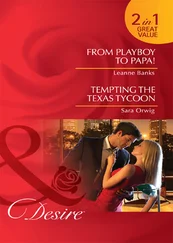Joseph McElroy
Taken From Him
Turn away from the arguing voices, be a guest unnoticed, the issue on this slum beach the ancient fort and your group you’re not wholly of — the leader your friend who won’t take No from a gold-badged Mumbai functionary, who swings a hand out like a traffic cop, chops it downward: the fort is off-limits. Hindi translates well into prophetic gestures. He and his two men, uniformly moustached, police the shore, the dubious beach, the huts, the area of the old fort, the view. While in the viewfinder of one’s borrowed camera, distinguished but never to be made friends with, is found the flared gunwale of a skiff, a flash of water light, a patchwork square of yellow-and-gray sail out there for an instant.
Off-limits, the police are saying to our leader, who is not to be taken lightly. Centuries old, its walls stained now, dilapidated, a sight, this fort abandoned but not abandoned, commanding the bay once — now repurposed. A democracy of voices raised, is it India, is that all? — the sheer agitation? Cannot go in there! body language itself warns; while for the visitors, their mentor, an overseas visitor himself this trip, Indian he and his wife, brilliant, famous, quite evidently answers the entrenched official, Nothing says we can’t .
In English, catching the eye of his friend now, who is a sort of special guest tagging along, he tells his people that these guys don’t know what they are doing, though what they are doing saying No to us is finding something to do. While the lead officer, interrupting, has switched to English, yet even now and with this contingent of visiting landscape design specialists from the States, how do you tell if this irate debate is serious? The leader not giving up, his friend the special guest can turn away unnoticed in all probability, the diamond-cable Sea Link bridge a huge sail-shaped glint of it in the camera viewfinder bypassing us to connect North and South Mumbai — Arabian Sea — beyond; the bay this side; and then on a near corner of this shore in the privacy of this lens is found between a jaundiced rampart and you a hand. And a shining profile waiting to go somewhere, a slender shoulder, hopeful, a palpable neck, a comb lifting and gathering a fall of abundant hair. This borrowed lens at a tilt now wide-angling a corner of the fort, when aimed a degree to the left seems followed by the person who then is lost. A degree further, she’s there again, then gone: her hand signaling, it seems, to come in.
Is it the viewfinder of an expensive camera one would never buy that asks the eye to shoot, to click? Instead see with your own eyes a trace of color vanish at the nondescript entrance to the fort, blue gone about its business, hints of silver reflection — yes, a fold in the tunic across the chest young and brave. Perhaps there isn’t time. Look back, remember these young companions you count on to get you from one place to another, the next stop in a metropolis of mapless alleys and slum lanes, Vespas bearing whole families, democracy overlap, ghostly caresses of hands out, begging. No architect, or planner or graduate landscape designer or even taker of snapshots, the mystery guest taken care of, a joke, really. And the person entering the viewfinder, what has she seen, or why?
A pale and speckled dog skittered along the strand looking over his shoulder. Men in shorts wandered the sands. Where are the shells? Historical ground underfoot, befouled beside the waters of Mahim Bay where under the sun a lot is almost happening, fishing boats, an anchored dredger far out near a reclamation dock confirmed on the map, beyond it another of those forts, Worli, on a peninsula, one of two like crab pincers that grasp the bay; or nothing is happening, shaped by some delay in history itself, which is meaningless accelerations. Here, once marked by the Mahim Fort or held by it you could say, sand and coral from the sea met silt and clay from the creek. A shear between materials later confounded by the British with a causeway built across the connecting creek in the 1840s blocking most of the creek deposits. Without them, the sea slowly prevailed, some foundations of the fort eroded, the beach wore away and this whole corner of shore inched north, we’re told. The visitors with a view now to intervention in this landscape, the municipal authority has such projects on hold.
Our leader was talking local Maharathi to the guards now, you’re certain of it at a guess. The guards overmatched by our leader? That’s not quite it. They perhaps do not wish the fort seen inside, the darkness of its population experienced, you could say. But the day has been carried, those who want to go inside the fort, may go, if any after all do. Already at the doorway, camera cased, beware the narrowest passages into what? — hundreds of families housed in a small fort.
It is a plunge like nothing but the stench. In a foreign sea, when will diver descending come back up, breath and heartbeat mortal noise. A faint catch in the chest. Who is here? At once inside the entrance a bend of passageway, in a corner a person shelling or preparing something, from a sack into a pan. Further in, like the City, a ladder to a second floor — a third? — scaffolds up there, the light real — each level four feet or maybe five headroom, sitting-down room. A bent old person in a sari can just lift her pot, a sense of others crouched, seated, maybe busy. Two women speaking of this visitor below, old men lurk. “Ah, you see?” a girl said. “I knew you would come.”
“What do you mean you knew?” It was she from the viewfinder. “You are not one of these architects,” said the girl.
He had smelled her before she spoke standing beside him now (tunic, bluejeans) and knew the smell. Not the breathtaking stench living around them and of waste established suffocating at first and humanly familiar from other stops on the itinerary, but her scent, a plant scent, a distance maybe not hers at all, the intruder into the camera. Water dripping from above, “Careful you will soil your shirt.” It was she for sure. Feel for the camera. She had taken something from him, or would. He did not think of himself. Face, shoulder, glinting comb she’d sent his way in the viewfinder. She was serious about something, she had taken something from him, taken it on or meant to.
This twenty-year-old? She was giving a tour perhaps that he must pay for? She talked from the heart not loudly, like low laughing. “They built this place to last,” she said. A sudden inside of life brushed close as the ladder and the ghost of someone’s elbow bumped, and above, life on a rickety second tier like a loft; then a tunnel almost a rough, coolly crumbling-feeling but established passage ahead cramped to connect or for escape, rutted, a future, smotheringly narrow. He thought she would say something that would strike him and if one can’t wholly listen (even to a strange compliment), the place asks everything.
“Hang onto your camera.” “It’s not mine.” “All the more.” “Don’t really know how to use it.” “That is irresponsible.” “Worse if I mis used it.” “I saw you tak ing a picture of me.” “I didn’t take it.” “You should have.” “Not the first I haven’t taken.” The girl laughed. “It was a photo opportunity, suhrr.” She held up to him, but to do what with, a bar of soap that smelled. “God is in the details,” he was inspired to say. “You mean everywhere?” “Only sometimes.” “You are not a cruel person, but…” — absorb her talk — “you are not here for long. I am an intern. I can drive a scooter. I have two sisters. You understand that.” “I what?” “Here is a boy, he works for the metal recycling over by the river (?).” Scarcely to be seen, a child grins, glad to see you. “The Mithi?” “Precisely.” “Is it really a river?” “Ah, you see that is why I am here.” Who would say such things? But this is what she thinks of the overseas visitor.
Читать дальше












